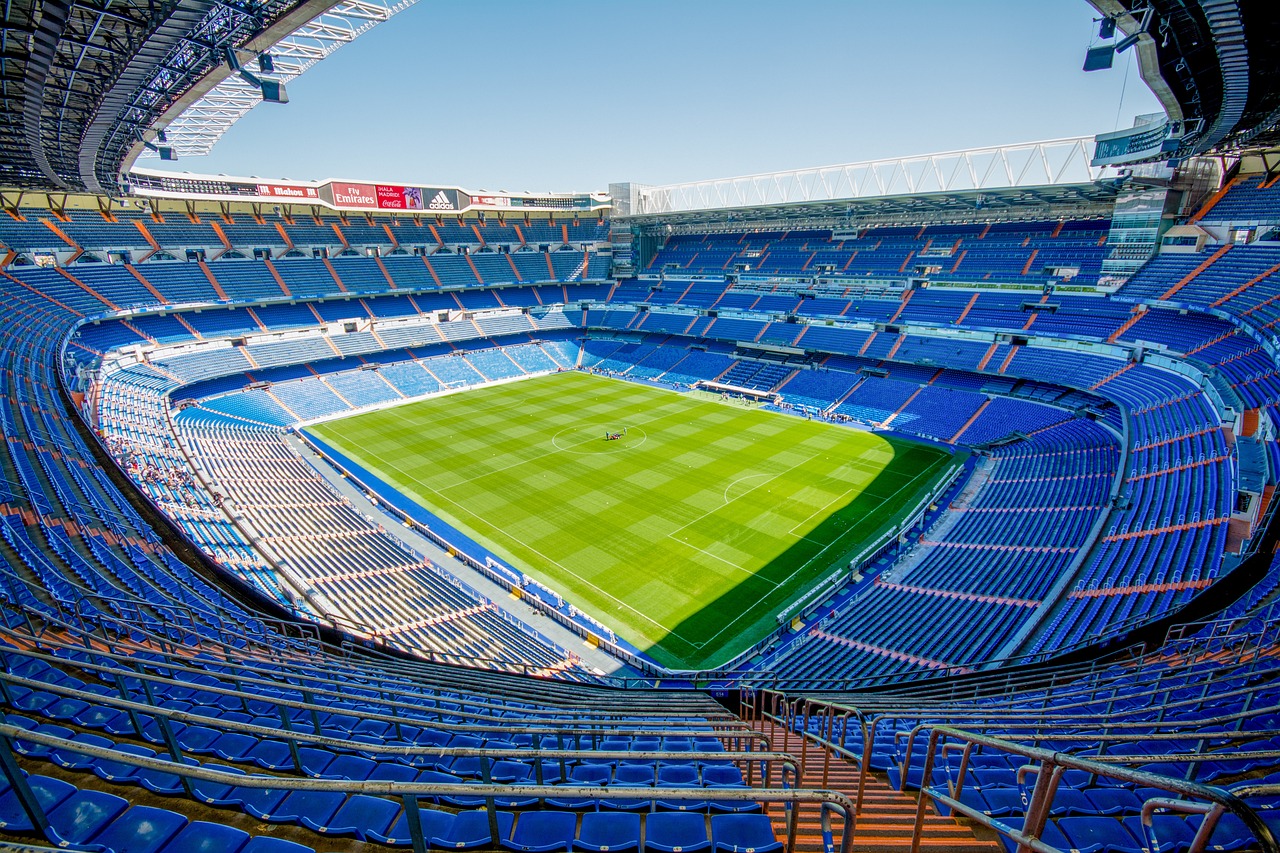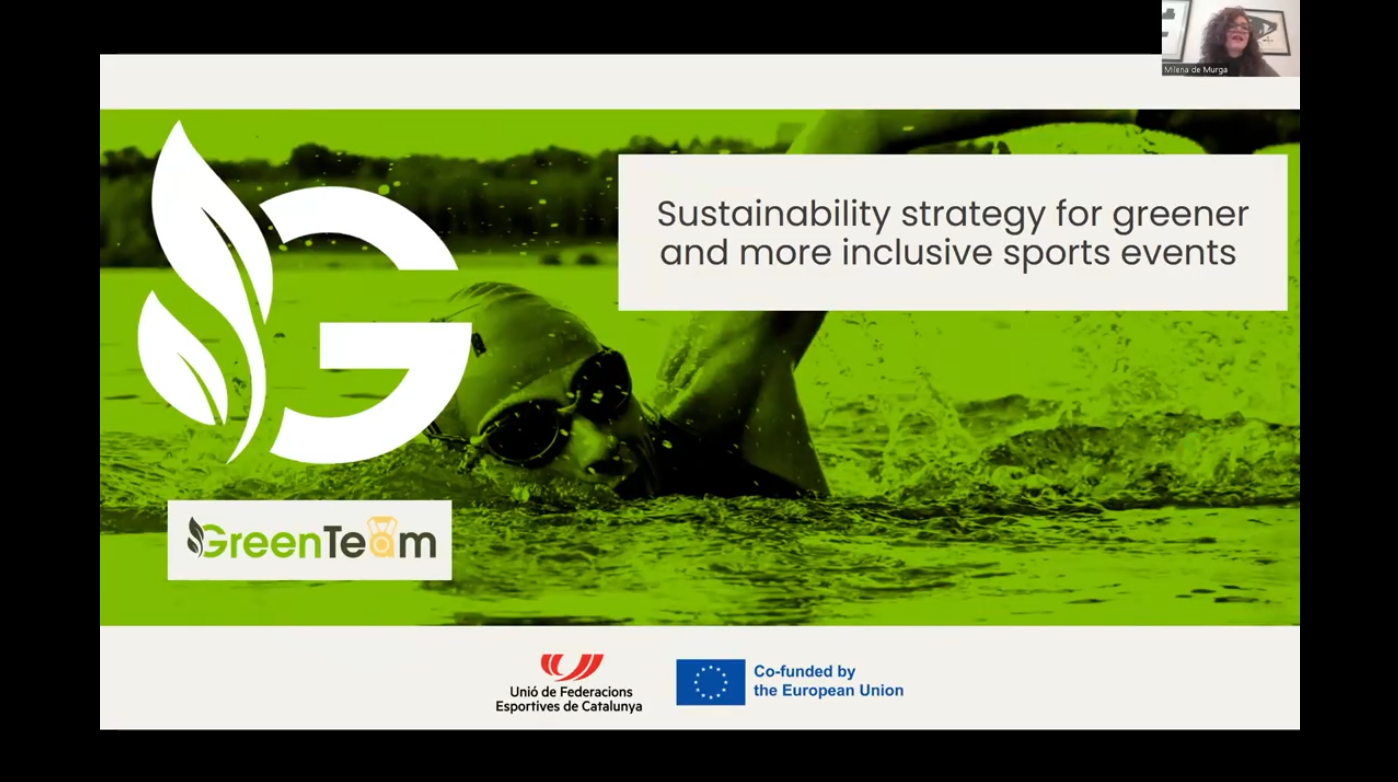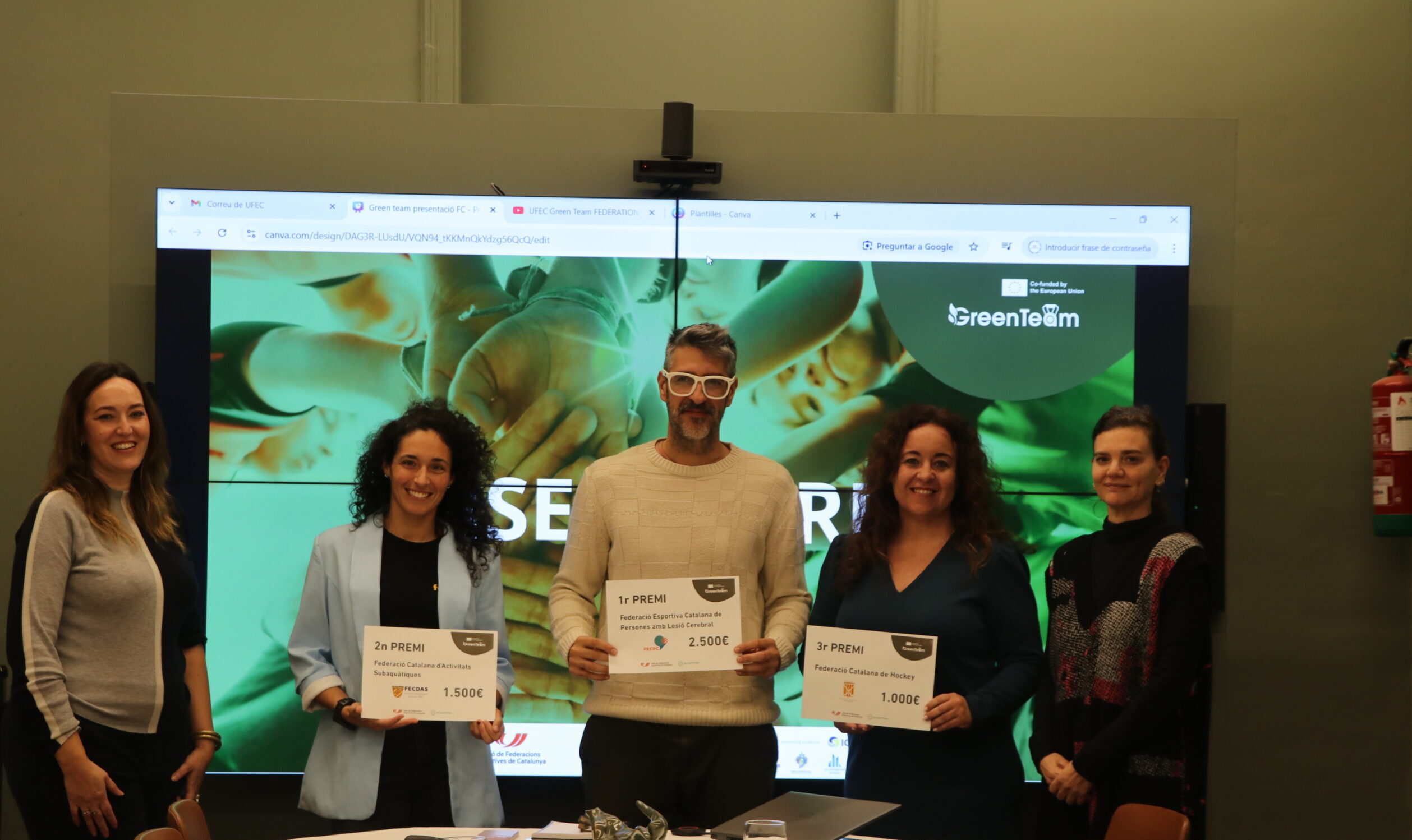TOWARDS GREENER AND MORE INCLUSIVE SPORT EVENTS
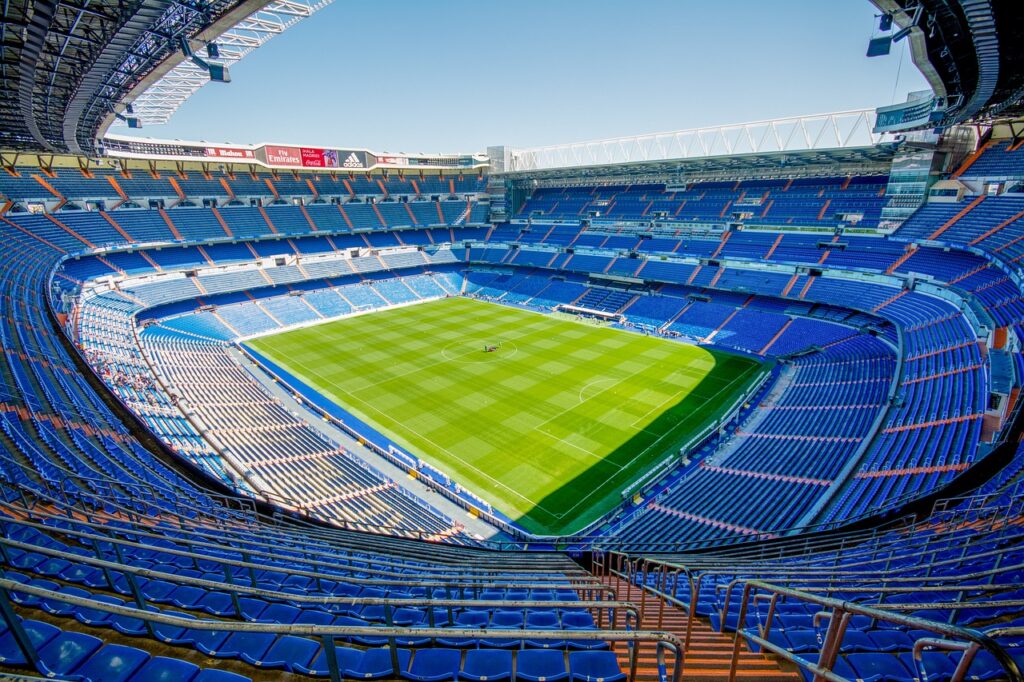
More than ever, preserving the environment is a crucial challenge. As a unifying force, the sport sector has an important role to play in raising environmental awareness and promoting the adoption of sustainable practices in our daily lives and beyond. Focus on the 2024 Olympic and Paralympic Games, which have adopted various strategies to offer a more sustainable event.
Sporting events bring together thousands of participants, spectators, and media personnel. While these events foster unity and celebrate athletic excellence, they also have a significant environmental footprint. The environmental impact of sporting events is multifaceted. Large-scale events, such as the Olympic Games, World Cups, and marathons, require extensive infrastructure, significant energy consumption, and the transportation of millions of people. Consequently, sport needs to adapt its operating model to combine reducing its environmental impact with raising awareness among a multitude of stakeholders. Given the significant environmental footprint of sporting events, there is a pressing need for the sport sector to adopt a holistic approach that includes better management of infrastructure, the promotion of soft mobility through public transport, cycling, and walking, and the implementation of comprehensive waste management strategies.
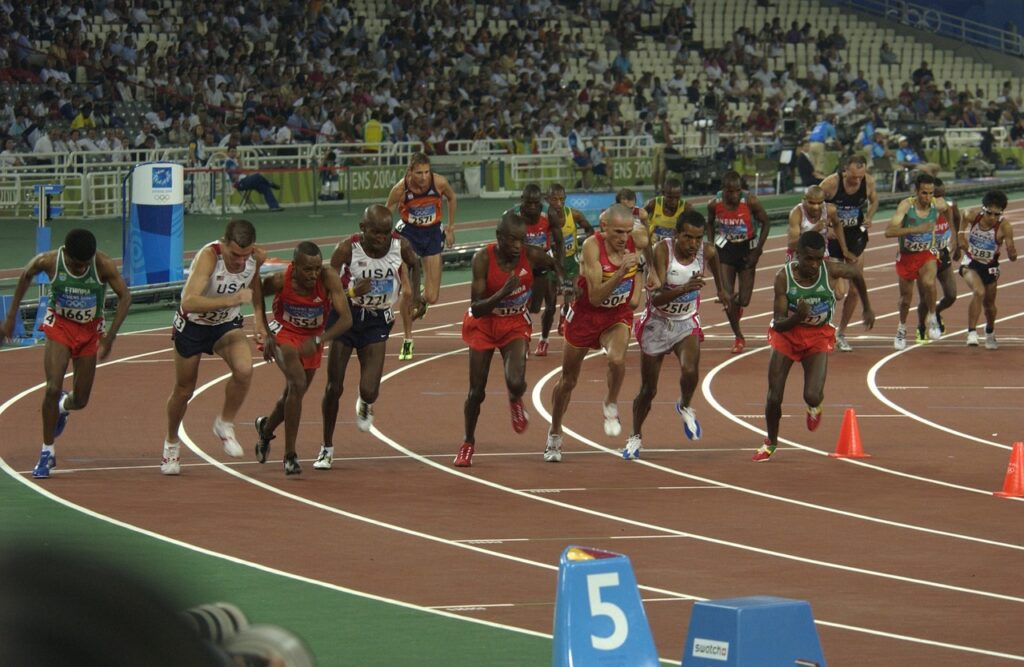
Major sporting events can play a pioneering role in the ecological transition of sport, demonstrating what can be achieved by players in all fields. The International Olympic Committee (IOC) has fully acknowledged these challenges by establishing sustainability as one of the three pillars of Olympic Agenda 2020. This commitment ensures that sustainability is embedded in all aspects of the planning and delivery of the Olympic Games. The IOC Sustainability strategy covers five interrelated focus areas: infrastructure and natural sites, sourcing and resource management, mobility, workforce, and climate. The overall goal is to create long-term benefits for local populations.
The example of the Olympic Games
The “Reduce, Repurpose, and Re-use” Approach
Paris 2024 is the first Olympic and Paralympic Games to be fully aligned with Olympic Agenda 2020 requirements. The organizing committee adopted the “reduce, repurpose, and re-use” approach, focusing on infrastructure. Indeed, they significantly reduced the need for new construction by utilizing 95% existing venues, preserving natural landscapes and reducing carbon emissions associated with building new structures. Even for the new venues, the aim was to construct with the principle of reducing and reusing in mind, ensuring long-term opportunities for local communities to practice sport.
The “reduce, repurpose, and re-use” approach also applies to the Olympic Village, which will house 23,500 athletes and support staff during the Games and Paralympic Games. It is set to be repurposed into a new residential area, including over 2,800 apartments, with 25% designated for public housing. The remaining apartments will be affordable units for low-income workers and students. The first occupants are scheduled to move in during the spring of 2025.
Sustainable Transport and Food Strategies
First all-cycling Olympics

With transport representing the biggest emissions sector after infrastructure construction, one of the key factors that tipped the scales in favor of Paris 2024’s bid was the commitment to become the first Olympics to be entirely accessible by public transport, on foot, or by bike. The organizing committee has encouraged spectators to use trains and public transport and innovated by aiming to make the Games the first all-cycling Olympics. This initiative includes 72 kilometers of lanes isolated from motorized traffic, bicycle parking facilities, and more self-service bicycles.
Responsible eating
Furthermore, to cater for the 13 million meals served, Paris 2024 has unveiled its Food Vision, a multi-pronged strategy for responsible eating. One objective is to reduce the proportion of animal proteins by offering more fruit, legumes, and whole grains. 60% of the meals offered will be vegetarian for spectators, and 50% for volunteers, staff, media, and the Olympic and Paralympic family. There is also an emphasis on the sustainability of the food: 80% of the overall supply will be of French origin, and 80% will be labelled sustainable, with a quarter of this supply coming from within a radius of less than 250km of the competition venues. Imported products will be entirely organic or fair-trade. To complement this initiative, an awareness-raising campaign will inform the public about the origin of products and the benefits of local, plant-based food.
Reuse or recycle
The 2024 Olympic and Paralympic Games also aim to pioneer the reduction of single-use plastics by promoting the reuse of glass bottles or the use of recycled bottles. Some disposable containers will be replaced by reusable tableware. Lastly, Paris 2024 aims to combat food waste by donating surplus food or reusing it for compost or animal feed.
Best practices to reduce environmental impact

Several best practices from ENGSO can be highlighted to help sporting events reduce their environmental impact:
- Choose an Eco-Friendly Venue: Select venues with good proximity to public transportation, utilize existing sports infrastructure, and ensure outdoor venues are not in environmentally protected or vulnerable areas.
- Green and Local Food: Offer local catering with reduced meat choices and local ingredients to lower the event’s carbon footprint and avoid food waste.
- Recyclable Materials: Incorporate recycled and upcycled materials where possible. Avoid single-use items to minimize waste.
- Support Green and Active Transport: Encourage participants to travel to the event by biking, walking, or using public transport.
- Limit Waste or Go Zero Waste: Use recyclable materials like bottles, glasses, and plates, and strive to organize a zero-waste event.
- Eco-Friendly Event Merchandise: Ensure merchandise is made from sustainable materials such as bamboo, recycled materials, or organic cotton.
- Educate About Sustainability: Highlight the importance of sustainability and collective efforts in addressing environmental challenges to event participants.
Drive positive change
Therefore, sporting events have the potential to inspire global audiences and drive positive change. As we move forward, it is crucial for all stakeholders in the sport sector to embrace sustainable practices and lead by example in reducing their environmental impact. The efforts of the IOC and the Paris Olympic Games provide a roadmap for future events, demonstrating that it is possible to celebrate athletic achievements while preserving the environment for generations to come.
